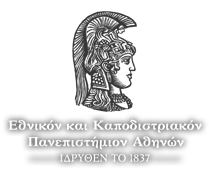Dear students,
I hope this finds you well and I would like once again to thank you for your great contribution to this course. It was a great pleasure to me to have you on board and I enjoyed our great interaction throughout the semester.
It is a real pity that time did not suffice so as to wrap up the way I wanted to in our last session and to make sure that everyone is clear on the requirements of the final exam:
The striking majority of the group consists of those students that have taken the mid-term and passed it.
For those students, the final exam will have an analogous structure to that of the mid-term. You will therefore be provided with 2 topics on the 17th century literature we have analyzed in class and will address any one of these. ATTENTION: i have just explicated that those students that have taken the mid-term and passed it will address one out of two topics on seventeenth-century literary texts that we analyzed in class.
For those few students that have not managed to take the mid-term and have contacted me informing me of this and of the reasons, etc. they will take the full exam. This means that they will be provided with a Section A consisting of 2 topics on the 16th century literature that we have analyzed in class and will choose any one of these AND a Section B consisting of 2 topics on the 17th century literature that we have analyzed in class and will choose any one of these. ATTENTION: I have just explicated that the students that have not taken and passed the mid-term and will take the full scale (100%) exam, will need to answer two questions, one per Section.
Whether you will take the final exam on the 50% scale or the full, 100% one, you need to pay attention to the following:
There is no word limit but you need to make sure that your response(s) is (are) concise, precise and to the point.
If there is need for textual analysis, you will have the excerpt(s) in front of you, embedded in your exam topics.
Do make sure that you adress precisely what is requested (neither more nor less) and that you do NOT summarize the plot (you are expected to be aware of it by default). Of course, you can refer to some element of the plot if that will enable you to substantiate your argument but this is different from summarizing the plot.
To ensure that no student is unclear as to the literary texts we have analyzed in-class (as there are some of you that have not been able to participate in all classes):
- Introduction to the Renaissance and its preoccupation with 'truth' and illusion
Sixteenth-century texts:
- John Skelton, "The Bowge of Court"
- Sir Thomas Wyatt the Elder, "Whoso list to hunt"
- Sir Thomas More, Utopia
- John Calvin,The Institution of Christian Religion
- Richard Hooker, Of the Laws of Ecclesiastical Polity
- Sir Thomas Hoby's translation of Castiglione's The Courtier
- Elizabeth I, Speech to the Troops at Tilbury
- Edmund Spenser, The Shepheardes Calender[Aprill]
- Sir Philip Sidney, Astrophil and Stella, 45
- William Shakespeare: Sonnets, 130
Seventeenth-century texts:
- John Donne, “The Ecstasy
- Ben Jonson, The Masque of Blackness
- Lady Mary Wroth, Pamphilia to Amphilanthus, 40
- Edmund Waller, “The Story of Phoebus and Daphne Applied”
- John Ford, The Broken Heart (the parts of the play that we managed to analyze before the end of the course)
We have also taken into consideration the following critical theories but only in a minor, enhancing way. Therefore, you may use them if you think that they can enable you in your response(s) but this is not a must.
Critical Theories (mainly from The Norton Anthology of Theory and Criticism)
- Plato: Ion(excerpt), Republic (Books. II, III, X)
- Plotinus: Fifth Ennead(excerpt)
- Carl Gustav Jung: “On the Relation of Analytical Psychology to Poetry”
- Roland Barthes: “The Death of the Author”
- Louis Althusser:Ideology and Ideological State Apparatuses (excerpt)
- Jean Baudrillard: The Procession of Simulacra (excerpt)
- Stephen Greenblatt: Renaissance Self-Fashioning: From More to Shakespeare(excerpt)
- Edward Said: Orientalism(excerpt)
- Judith Butler: Gender Trouble (excerpt)
I wish you all the very best and see you on the 4rth of July,
Vassiliki Markidou
